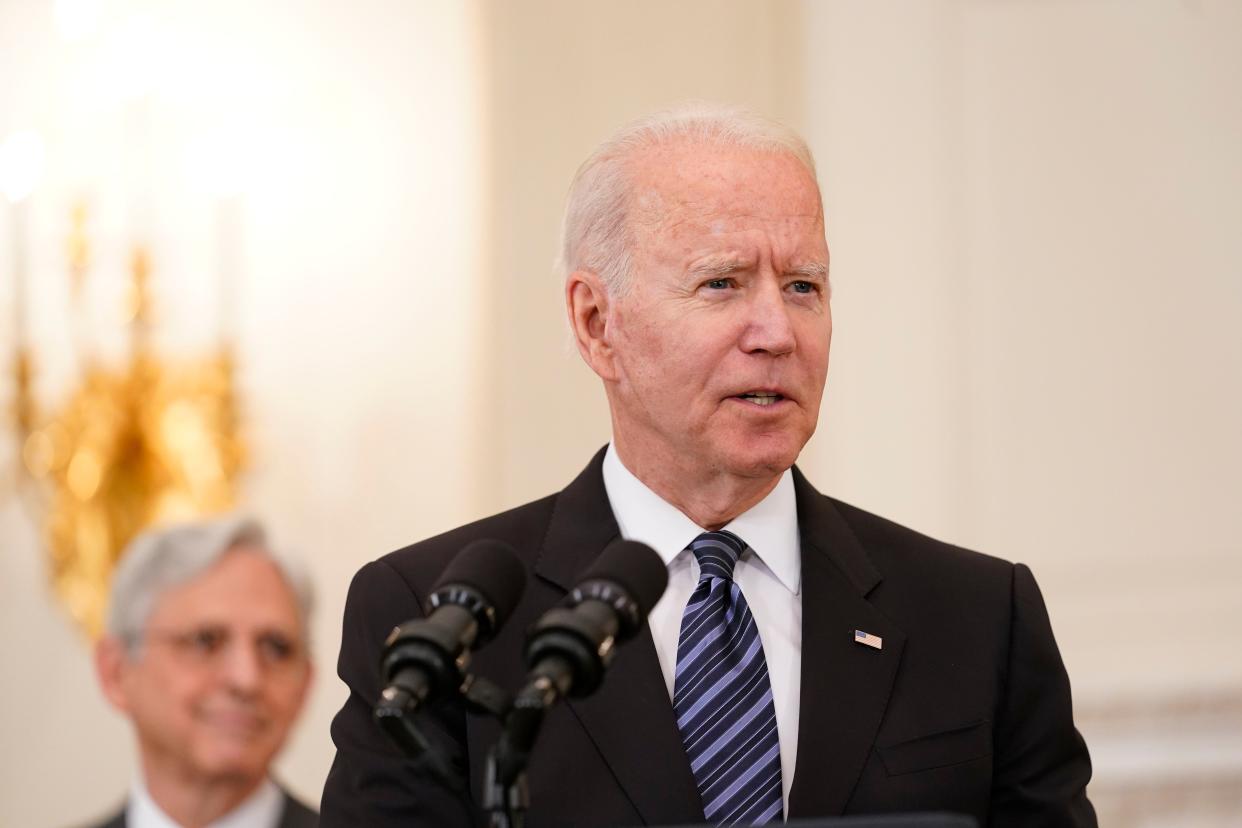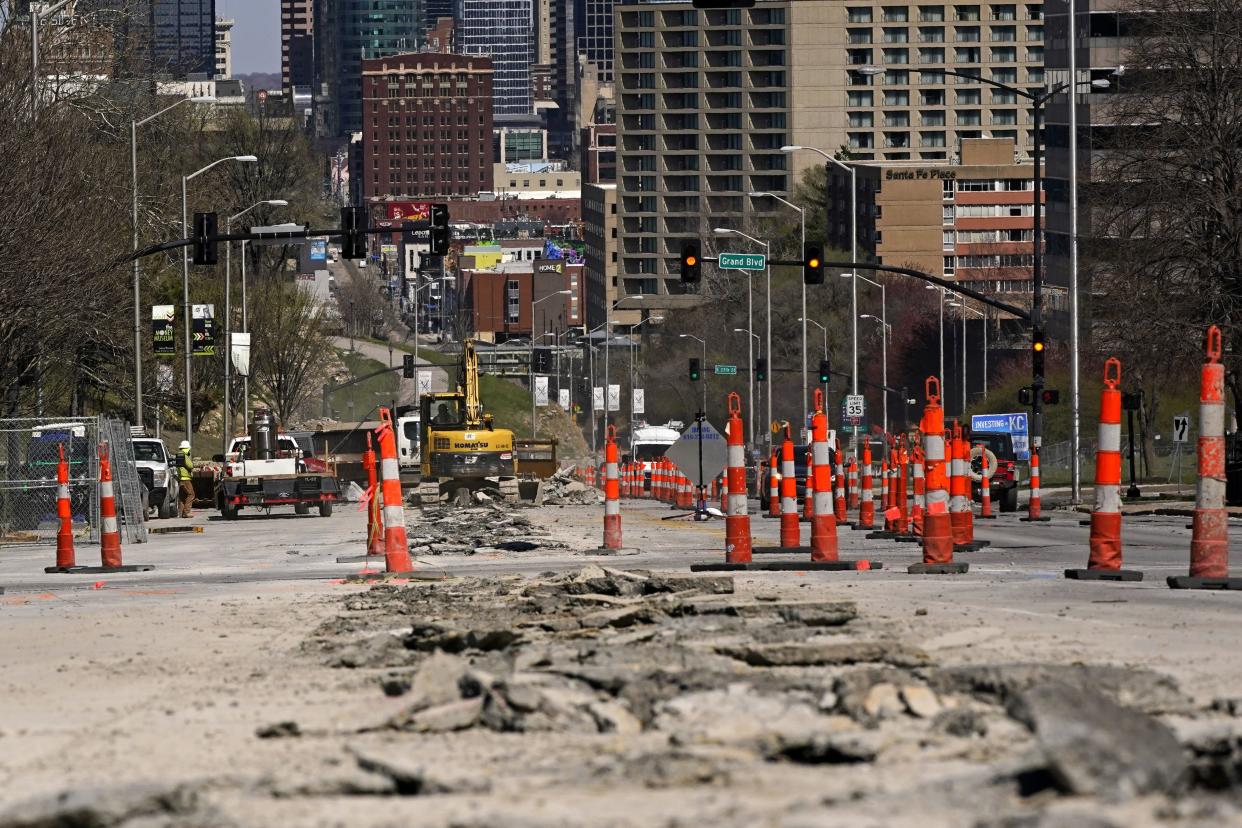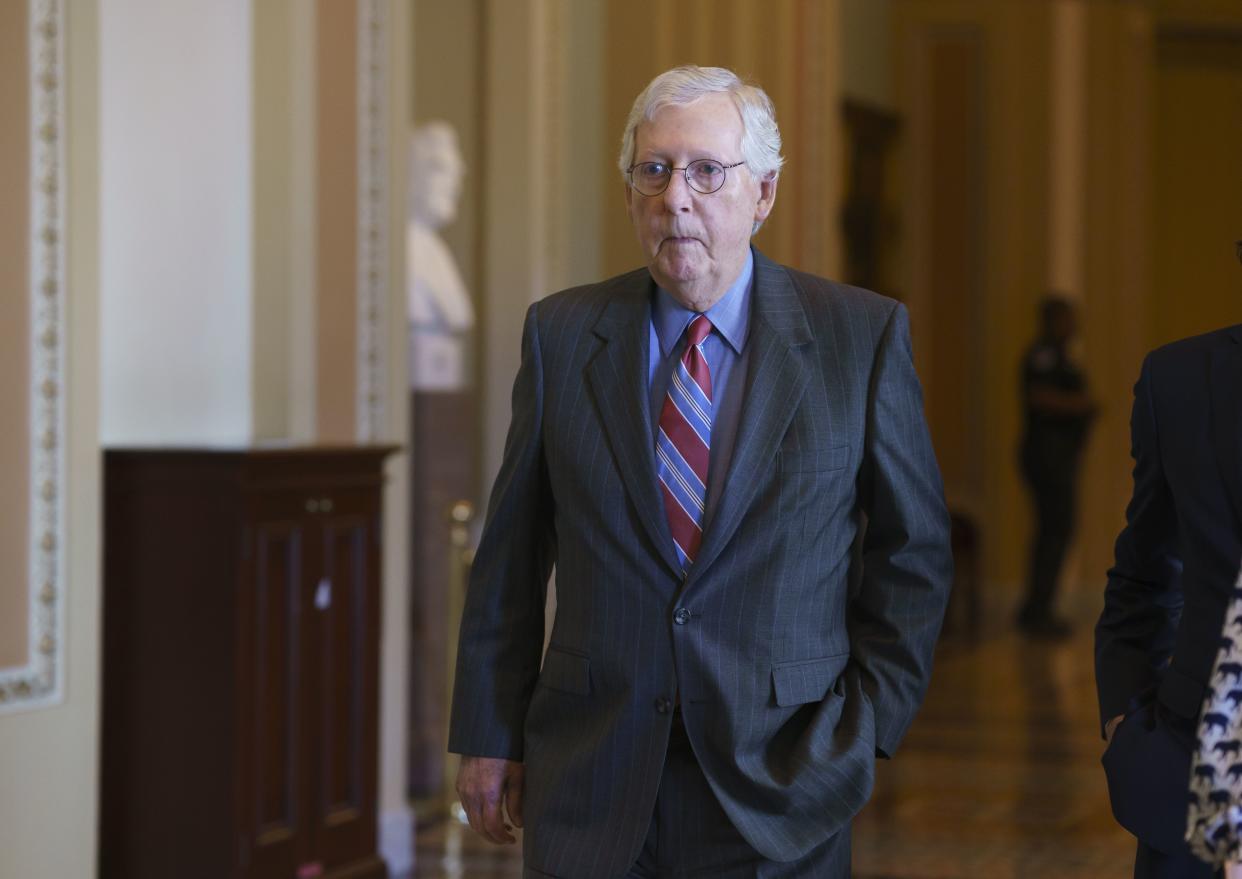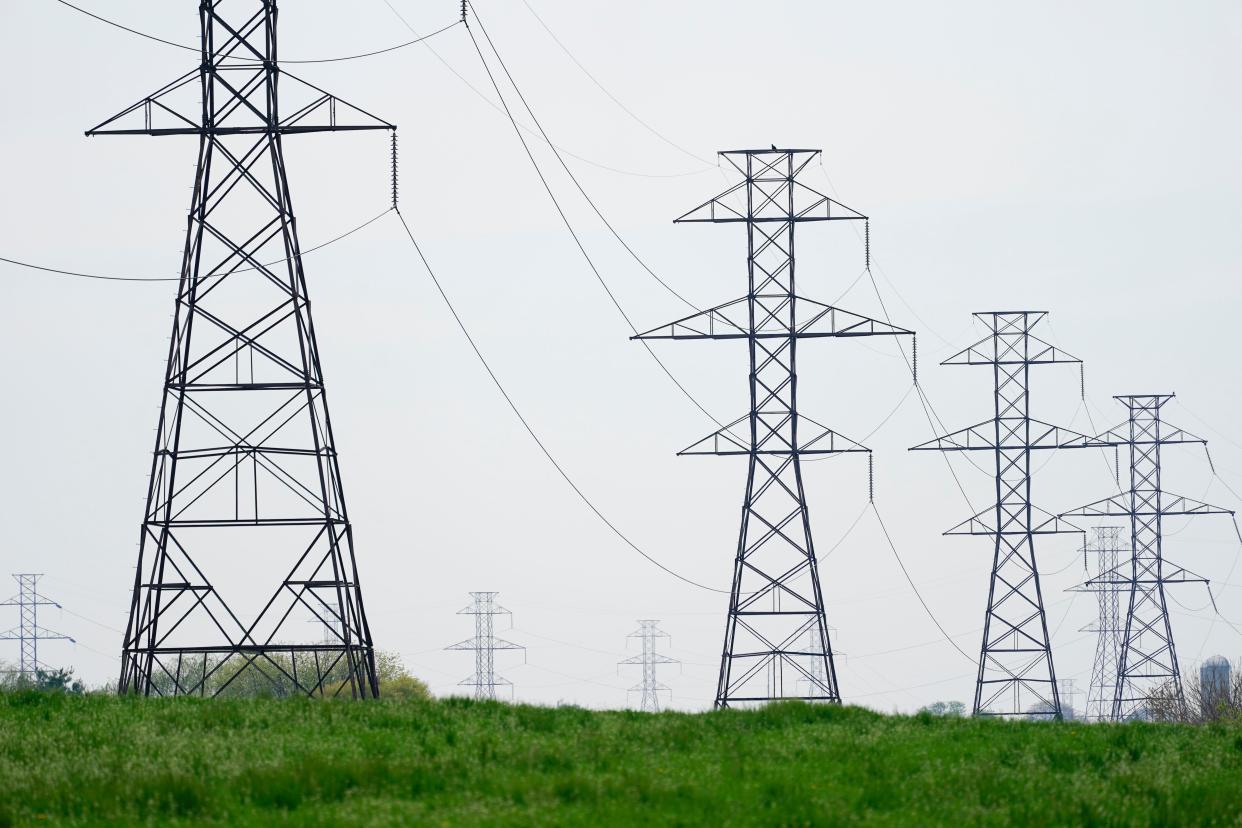‘This is the deal’: Biden reaches infrastructure compromise with GOP, assures Dems he’s not done yet
After months of fruitless negotiations, President Biden announced Thursday that he has reached a deal with Republicans on an infrastructure plan worth nearly $1 trillion — though he acknowledged that Democrats will have to supplement the pared-down package with a separate measure that is unlikely to earn GOP support.
The $953 billion compromise plan is focused mostly on physical infrastructure — roads, bridges, public transit and broadband — leaving out the sweeping “human infrastructure” provisions that Biden has long said are prerequisites for him, like investments in hospitals and child and elder care.

“Let me be clear: Neither side got everything they wanted in this deal. That’s what it means to compromise, and it reflects something important. It reflects consensus,” Biden told reporters after hashing out the agreement with a bipartisan group of senators in the Oval Office.
At the same time, Biden made no bones about the fact that he still expects Democrats to pursue the remaining portions of his nearly $4 trillion infrastructure and social spending blueprint via reconciliation, a complicated budgetary process they can use to pass legislation without any Republican support.

The president even went as far as to say he’d veto the compromise bill if it’s not accompanied by a reconciliation measure.
“If only one comes to me — this is the only one that comes to me — I’m not signing it. It’s in tandem,” Biden said.
Biden’s two-track approach ruffled some feathers with the top Republican in the Senate.
“That’s no way to show you’re serious about getting a bipartisan outcome,” said Senate Minority Leader Mitch McConnell (R-Ky.), who was not in the Oval Office meeting with Biden. “Endorse the agreement in one breath, and threaten to veto it in the next. It almost makes your head spin.”

Despite the cold reception from McConnell, the five Republican senators who were in the meeting took a victory lap over the long-sought bipartisan infrastructure deal and did not appear perturbed by Biden’s separate reconciliation push.
“It sends an important message to the world as well that America can function, can get things done,” said Maine Sen. Susan Collins, who belongs to a small contingent of Republicans who consider themselves moderates.
To pass the compromise bill without reconciliation, Biden needs the backing of at least 10 GOP senators — and he said the Collins group assured him the support is there.
“The people I was with today are people that I trust. I don’t agree with them on a lot of things, but I trust them when they say this is the deal,” he said.
Democrats in Congress welcomed the bipartisan breakthrough.
But they also echoed Biden in saying they won’t act on the compromise measure until the “human infrastructure” components are covered.
“There ain’t going to be a bipartisan bill without a reconciliation bill,” said House Speaker Nancy Pelosi (D-Calif.).

The bipartisan framework drawn out Thursday includes $109 billion for roads and highways, $15 billion on electric vehicle development and transit systems and $65 billion for internet broadband expansion. There’s also cash for upgrading airports, drinking water systems and some resiliency efforts for combating climate change.
One of the hardest sticking points throughout months of talks between Biden’s negotiators and congressional Republicans has been how to pay for an infrastructure plan.

Biden has proposed securing the funding by hiking taxes on corporations and the rich — a suggestion detested by Republicans, who instead want to raise the cash by enacting higher gas taxes and other consumer fees.
Circumventing those disagreements, Thursday’s compromise proposal would tap funds from some unused COVID-19 relief funds approved last year, including unemployment insurance pots, according to a White House fact-sheet.
Money will also be raised through sales of 5G telecommunication networks and other assets, with additional revenue expected from taxes on economic activity spurred by the infrastructure investments, the fact-sheet says. The White House document does not provide a full breakdown of all the expected costs, however, signaling Biden’s team and the Republicans still have to tie up some loose ends before voting on the proposed legislation.
The tax hikes on corporations and the wealthy are still likely to be baked into the reconciliation package, Biden said.
“We need a fair tax system,” he said.
Infrastructure has been Biden’s top legislative priority since taking office in January.
Public transit, roads, bridges and various other infrastructure systems across the country, including in New York, are in dire need of repairs after decades without major investment from Congress.
Progressive Democrats have urged Biden to stop negotiating with Republicans and pursue the whole deal via reconciliation following months of gridlock.
But Biden, who spent decades as a Delaware senator priding himself on his ability to reach across the aisle, suggested bipartisanship is a matter of principle for him.
“This deal means millions of good-paying jobs and fewer burdens felt at the kitchen table,” he said. “But it also signals to ourselves and to the world that American democracy can deliver.”
